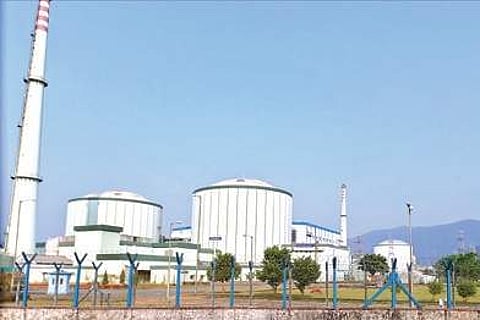

KARWAR: Tata Memorial Centre has found that the number of cancer cases in Karwar taluk where Kaiga Atomic Power Station (KAPS) is located, has increased by 200% over a period of three years.
A study was conducted during 2010-2013 by a team of the Mumbai-based centre which published the results in March this year.
The team found that there were about 70-80 cancer patients in Karwar taluk before 2010. But the number of patients increased to 316 during 2010-2013. They have collected data from 30 hospitals all over the country — accounting for 129 men and 187 women. In men, lung, mouth, oesophagus, tongue and hypopharynx cancer was found, while in women, breast cancer is the most common case (19.6 percent), followed by cervix uteri, ovary, esophagus, mouth and thyroid corpus uteri cancer. Many environmentalists were opposed to the plant saying it would directly affect people’s health. In 2009-10, following demand of environmentalists, Nuclear Power Corporation of India and the state government agreed to conduct population-based cancer registries (PBCRs) and the Tata Memorial Centre initiated the study during 2010-2013.
However, the study also says cancer rate in Karwar is much lower compared to International Cancer Registries of Shanghai (China), Osaka (Japan), Finland, Oxford (UK), the United States and Haut-Rhin (France). Uttara Kannada health officer Ashok Kumar said he has not got any report and once he gets it, the department will discuss it.Kaiga station officials refused to comment on the study saying they have not got any report.
Expert: Study should be broad-based
Dr Sanjeev Kulgod, a cancer expert, said if a survey or study initiated, it should be held in all areas and only then, it is possible to say whether there is any change after the nuclear plant was set up. As life expectancy has increased, the chances of cancer has also increased. Changing lifestyle and unhealthy food habits are also the reasons for cancer, he said.